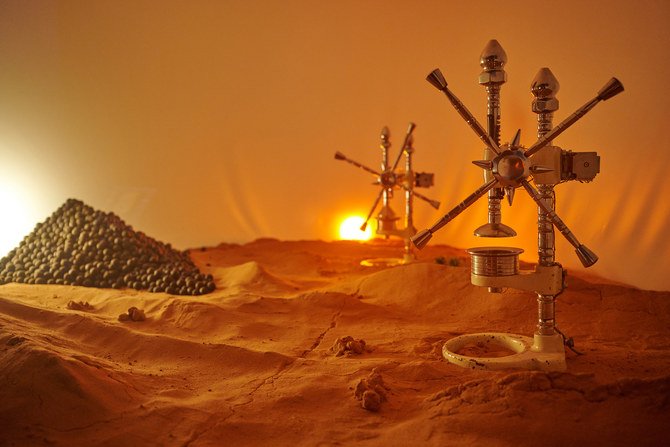Lifestyle
9.13.2018
Saudi Arabia : Cinema 500 km, a movie before cinemas

Cinema 500km was shot in 2006 while cinema was still banned in Saudi Arabia. The award-winning documentary raises the taboo of this ban through a Saudi youth passionate about the 7th art and ready to travel hundreds of kilometers to see a big screen.
The story of Saudi cinema did not begin last April, when cinemas were allowed to open for the first time since the 1970s. Indeed, in 2006, Abdullah Al Eyaf shot his first documentary film in the kingdom, his homeland. This was a mise en abyme of the situation then, where cinemas were prohibited while television was not. An ode to the Seventh Art, all in all, as well as a denunciation of this supposed absurd prohibition.
The trip of a Seventh Art lover
While cinema had been banned in Saudi Arabia since the 1970s, the population had access to the movies only through television, watched with the very intimate setting of family. This offered a rather limited experience for the viewer. In this context, the camera follows the long and tortuous trip of Tariq Al Husaini, a 21-year young man, seeking to live his passion for cinema, if only for a film. As the outcome of a visa application and a trip of more than 500km through Saudi Arabia, he finally made it to Bahrain and was able to go into a cinema for the first time.
Through the example of Tariq, a real friend of him, the director Abdullah Al Eyaf actually portrays the tribulations of a youth willing to pay the price to escape this ban and to be able to contemplate a movie on the big screen.
An authorized and rewarded transgression
This is the whole paradox of this film. Indeed, Abdullah Al Eyaf has obtained permission from the Saudi Ministry of Culture to shoot his movie, however it deals the cinema ban within the Kingdom. Its release in 2006, aboard of course and in Abu Dhabi especially for its premiere, triggered a media storm that earned the merit of opening up public debate on a subject still taboo.
As soon as it came out, the documentary received very good reviews and was even featured in the selections of dozens of festivals around the world. A success that the Saudis could attends to remotely, instead of being able to attend to screenings. Which is quite remarkably, is that the movie even won the Palme d’Or for Best Documentary at the first edition of the Saudi Film Competition in 2008, which was than the first event organized by the Government to reward movies.
From now on a testimony of the past
Despite the recent lifting of the ban, the film has never been released in the kingdom. Very experimental in its conception, it remains an exemplary archive to testify to this not so distant time when there was no movie theater in the country.
It also testifies to the ancient love of Saudis for art and culture, which Abdullah claims particularly in Cinema 500km. This position is also reflected in all his following movies, such as Aayesh released in 2010, for which he received the Best Short Film Award at the Gulf Film Festival and the Silver Aph Award at Beirut Film Festival.
Thanks to a very experimental style and inspired by pre-Islamic poetry, Abdullah El Ayef has found a place in the international film sphere. At the numerous world events where he goes as a jury or an award winner, like the Cannes Film Festival, he does not hesitate to claim his nationality and the creative potential of the young people of his country: “As a Saudi director, I firmly believe that my people will succeed in bringing its identity to existing narrative techniques, combining the beauty of old Arab tales with the modernity of our talents. “
popular

